Ireland, with its lush landscapes, rich history, and vibrant culture, is a dream destination for many travelers. Planning a trip to Ireland requires a good understanding of the potential costs involved. In this comprehensive guide, we’ll break down the various expenses, provide tips for budget-friendly travel, and highlight potential hidden costs to help you plan your 2024 trip to the Emerald Isle.
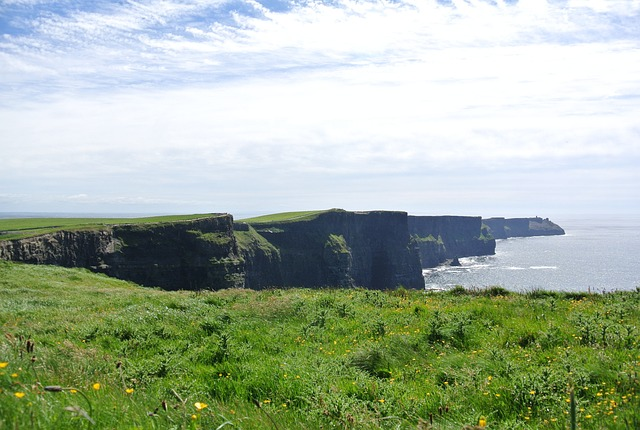
What Are the Average Living Costs for a Week in Ireland?
When estimating the average living costs for a week in Ireland, several factors come into play, including accommodation, food, transportation, and entertainment.
Visiting Cork? Here are Best Things to do in Cork Ireland: Awesome Places To Visit, Outdoor Activities to Do
Accommodation
Accommodation costs in Ireland can vary widely based on the type of lodging you choose, allowing for flexibility to fit different budgets and preferences.
Visiting Dublin? Here are Best Things To Do In Dublin Ireland: In Depth Guide for 2024
Hotels
For those who prefer the comfort and amenities of a mid-range hotel, expect to pay between €100 and €300 per night. These hotels often offer conveniences such as complimentary breakfast, on-site restaurants, and sometimes even spa facilities, providing a more luxurious stay.
Visiting Limerick? Here are Best Things to do in Limerick Ireland
Hostels
If you're traveling on a tighter budget, hostels are a fantastic option, with prices ranging from €20 to €50 per night. Hostels in Ireland are generally well-maintained and provide a friendly, communal atmosphere perfect for meeting fellow travelers. Many also include amenities like free Wi-Fi and communal kitchens.
Airbnb
Airbnb offers a wide range of private rooms and entire apartments, with prices varying from €60 to €150 per night. This option is ideal for travelers seeking a home-like experience, often in unique or local settings. You can find everything from cozy countryside cottages to modern city apartments, providing a personalized stay tailored to your needs.
Whether you're seeking luxury, budget-friendly, or something in between, Ireland's diverse accommodation options ensure you'll find the perfect place to rest during your travels.

Food and Drink
Food and drink expenses in Ireland can vary significantly based on your dining preferences and habits. Here's a detailed breakdown to help you budget accordingly.
Restaurants
Eating out in Ireland offers a wide range of experiences, from casual cafes to fine dining. For breakfast, you can expect to spend between €10 and €20 per person for a hearty irish breakfast. This typically covers options such as a full Irish breakfast, which includes eggs, bacon, sausage, and black pudding, or lighter fare like pastries and coffee.
Lunch prices range from €15 to €30 per person, depending on the restaurant and meal type. A typical lunch might include sandwiches, soups, and salads at a casual eatery or a more substantial meal at a mid-range restaurant.
Dinner is often the most expensive meal of the day, with prices varying from €20 to €50 per person. Dining out in the evening can range from enjoying traditional Irish dishes at a pub to experiencing gourmet cuisine at high-end restaurants.
Groceries
If you prefer to cook your meals, shopping for groceries is a cost-effective alternative. Weekly grocery costs generally range from €50 to €100, depending on your diet and shopping habits. Supermarkets like Tesco, Dunnes Stores, and Lidl offer a variety of products at competitive prices. Basic items such as bread, milk, eggs, and fresh produce are relatively affordable, allowing you to prepare meals without overspending.
Pubs
Visiting pubs is a quintessential part of the Irish experience, whether for a casual drink or a social night out. A pint of beer typically costs around €5 to €7, while a glass of wine is about €6 to €8. Prices can vary depending on the pub's location, with city center establishments generally being more expensive than those in smaller towns or rural areas.
Cafes and Snacks
For those who enjoy frequenting cafes or grabbing snacks on the go, budget for around €5-€10 per day. This amount can cover a coffee and pastry in the morning or a light snack in the afternoon.
Overall, while food and drink costs in Ireland can add up, there are plenty of options to suit different budgets. Balancing between dining out, cooking your meals, and enjoying occasional pub visits can help manage expenses effectively during your trip.
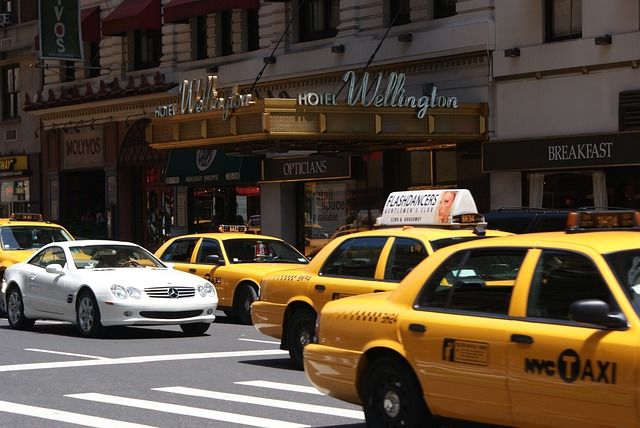
Transportation
Transportation costs in Ireland vary depending on your travel style and the modes of transport you choose. Here's a comprehensive breakdown to help you plan your budget:
Public Transport
Public transport in Ireland is efficient and relatively affordable, making it a popular choice for many travelers. Buses and trains connect major cities and towns, providing a convenient way to explore the country.
-
Buses: Bus fares typically range from €2 to €10 per journey, depending on the distance traveled. Local bus services within cities like Dublin, Cork, and Galway are frequent and reliable. For longer distances, companies like Bus Éireann and private operators offer intercity services at reasonable prices.
-
Trains: Train travel is another comfortable and scenic option, especially for longer journeys. Irish Rail operates the main railway network, with fares also ranging from €5 to €50 depending on the route and class of service. Booking in advance can often secure better rates.
Car Rental
Renting a car provides the flexibility to explore Ireland at your own pace, particularly in rural areas where public transport may be limited.
-
Rental Costs: Car rental prices generally range from €30 to €50 per day for a standard vehicle. It's advisable to book in advance and compare prices from different rental companies to find the best deal.
-
Fuel Costs: In addition to rental fees, you'll need to budget for fuel, which can be around €1.50 per liter. The total fuel cost will depend on your travel itinerary and distances covered.
Taxis and Ride-Sharing
Taxis and ride-sharing services like Uber are convenient for short trips or when public transport isn't available.
-
Fares: Taxi fares typically start at €4, with additional charges per kilometer traveled. For example, a short trip within a city might cost around €10-€15, while longer journeys will be more expensive. Ride-sharing services often have similar pricing structures but may offer slightly lower rates or promotions.
Bicycles and Walking
For those who prefer more eco-friendly and cost-effective options, renting a bicycle or walking can be ideal, especially in compact cities and scenic areas.
-
Bicycle Rental: Many cities offer bike rental services, with costs ranging from €10 to €20 per day. Dublin, for example, has a popular bike-sharing scheme called Dublinbikes, with short-term memberships available for tourists.
Overall, Ireland offers a range of transportation options to suit different budgets and preferences. Whether you choose public transport, rent a car, or rely on taxis and ride-sharing, planning ahead can help you manage your transportation costs effectively.
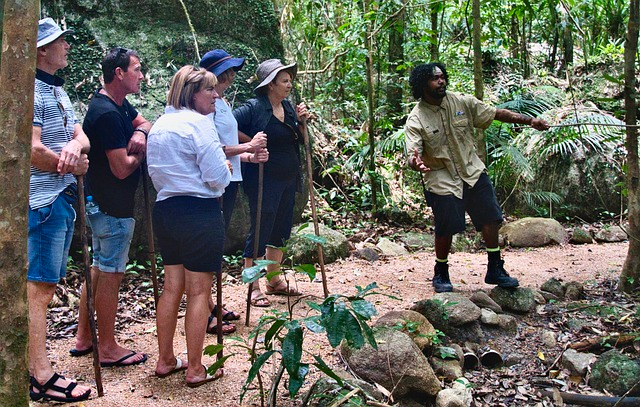
Entertainment and Activities
Ireland offers a variety of activities to suit all types of travelers and budgets. Whether you’re interested in exploring historical sites, taking guided tours, or enjoying the great outdoors, there are options available that can fit your financial plan.
Attractions
Ireland the west coast is rich in cultural and historical attractions, many of which charge a modest entry fee.
-
Museums: Entry fees for museums typically range from €5 to €15. Popular museums, such as the National Museum of Ireland and the Irish Emigration Museum, offer fascinating exhibits that delve into Ireland’s history and heritage.
-
Castles: Visiting castles is a highlight for many tourists. Entry fees can range from €10 to €20. Iconic sites like Blarney Castle, Dublin Castle, and Kilkenny Castle provide a glimpse into Ireland's medieval past.
-
Parks and Gardens: Public parks and botanical gardens often have free entry or a nominal fee of around €5. Places like the National Botanic Gardens in Dublin and the Japanese Gardens in Kildare are perfect for leisurely strolls.
Tours
Organized tours are a great way to see Ireland's highlights without the hassle of planning every detail.
-
City Tours: Walking tours, bus tours, and bike tours of cities like Dublin, Cork, and Galway typically cost between €20 and €50 per person. These tours often include knowledgeable guides who provide insights into the city's history and culture.
-
Day Trips: Day trips to famous sites like the Cliffs of Moher, the Giant’s Causeway, and the Ring of Kerry usually cost between €30 and €100 per person. These tours often include transportation, guided commentary, and sometimes entrance fees to key attractions.
Outdoor Activities
Ireland’s stunning landscapes make it an ideal destination for outdoor enthusiasts.
-
Hiking: Hiking is a popular and cost-free activity in Ireland. Trails like the Wicklow Way, the Dingle Way, and the Connemara National Park offer breathtaking views and can be enjoyed at no cost.
-
National Parks: Exploring national parks is also free. Killarney National Park, Glenveagh National Park, and the Burren are just a few of the beautiful areas where you can immerse yourself in nature.
-
Beaches and Coastal Walks: Ireland’s coastline is dotted with beautiful beaches and scenic coastal walks, all of which are free to access. Locations like the Wild Atlantic Way and the Causeway Coastal Route offer spectacular seaside views.
Festivals and Events
Ireland hosts numerous festivals and events throughout the year, many of which are free or have a low entry fee.
-
Cultural Festivals: Events like the Galway International Arts Festival, St. Patrick’s Festival, and Cork Jazz Festival often include free performances and activities.
-
Local Markets: Visiting local markets, such as the English Market in Cork or the Galway Market, can be a delightful and inexpensive way to experience Irish culture and cuisine.
By balancing visits to paid attractions with free outdoor activities and festivals, you can enjoy a rich and varied Irish experience without breaking the bank.

Ireland Trip Expenses Breakdown
Planning a trip to Ireland involves understanding the various costs associated with flights, accommodation, daily expenses local transportation, and more. Here's a detailed summary to help you estimate the total cost for a one-week trip in 2024.
Flight Costs
Flight costs will vary depending on your departure location and the time of year. On average:
-
Round-trip flights from the US: €400-€800.
-
Round-trip flights from Europe: €100-€300.
Accommodation Costs
As mentioned earlier, your choice of accommodation greatly affects your budget. For a week:
-
Budget travelers: €140-€350 for hostels or budget hotels.
-
Mid-range travelers: €700-€1400 for mid-range hotels or Airbnb.
-
Luxury travelers: €1400+ for upscale hotels or resorts.
Daily Expenses
Daily expenses include food, transportation, and entertainment. Here’s an estimate:
-
Budget travelers: €30-€50 per day.
-
Mid-range travelers: €50-€100 per day.
-
Luxury travelers: €100+ per day.
Total Estimated Costs
Based on the above estimates, here are the total costs for a one-week trip:
-
Budget travelers: €700-€1400.
-
Mid-range travelers: €1400-€2800.
-
Luxury travelers: €2800+.
Flight costs to Ireland can vary significantly based on your departure location and the time of year you plan to travel. On average, round-trip flights from the United States range from €400 to €800. If you're flying from Europe, you can expect to pay between €100 and €300 for a round-trip ticket. These flight prices can fluctuate based on the season, with peak travel times generally being more expensive.
Daily expenses in Ireland, including food, transportation, and entertainment, also vary depending on your travel style. Budget travelers should plan to spend between €30 and €50 per day. This can cover meals at local eateries, public transportation, and free or low-cost attractions. Mid-range travelers might spend €50 to €100 per day, allowing for more dining out, occasional taxis or rental car, rentals, and paid attractions or tours. Luxury travelers, who may prefer fine dining, private transportation, and premium activities, should budget for €100 or more per day.
Based on these estimates, the total cost for a one-week trip to Ireland can be summarized as follows. Budget travelers can expect to spend between €700 and €1400.
By carefully planning and considering these factors, you can better estimate the total cost of your trip to Ireland and ensure a memorable and enjoyable experience within your budget.
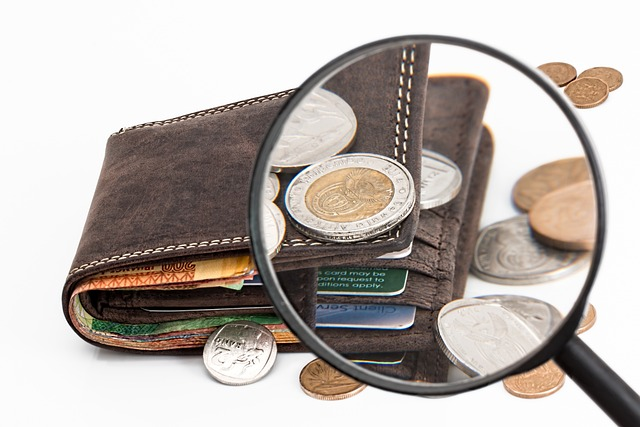
How to Estimate Your Travel Costs for Ireland?
Estimating your travel costs for a trip to Ireland involves careful planning and consideration of all aspects of your journey, from flights and accommodation to daily expenses and miscellaneous costs. Here’s a comprehensive step-by-step guide to help you estimate your travel costs and plan a memorable trip to Ireland in 2024.
Step 1: Determine Your Travel Style
The first step in estimating your travel costs is to determine your travel style. Are you a budget traveler, a mid-range traveler, or a luxury traveler? Understanding your travel style will significantly impact your overall costs and help you make informed decisions.
Budget Traveler
If you’re a budget traveler, you’ll be looking for the most economical options for accommodation, food, and activities. You’ll likely stay in hostels or budget hotels, eat at local eateries or cook your meals, and focus on free or low-cost attractions.
Mid-Range Traveler
As a mid-range traveler, you’ll be willing to spend a bit more for comfort and convenience. You might choose mid-range hotels or Airbnb rentals, dine at a mix of casual and nicer restaurants, and enjoy a balance of free and paid attractions.
Luxury Traveler
Luxury travelers seek premium experiences and are willing to pay for them. This includes staying in upscale hotels or resorts, dining at high-end restaurants, and indulging in premium activities and tours.
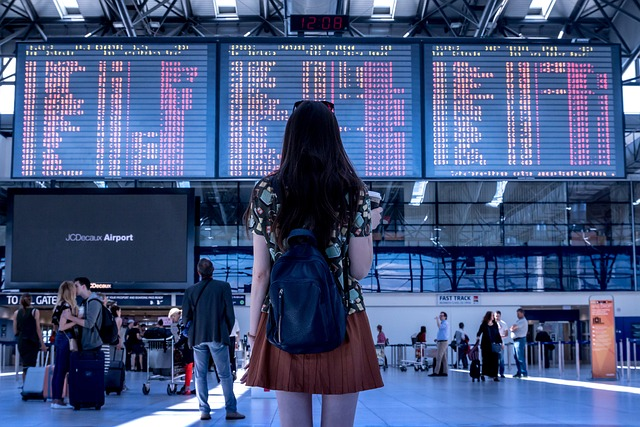
Step 2: Research Flight Costs
Flight costs can vary widely depending on your departure location, the time of year, and how far in advance you book. To get the best deals on flights to Ireland, use flight comparison websites such as Skyscanner, Google Flights, or Kayak. These platforms allow you to compare prices across different airlines and booking sites.
Tips for Finding Affordable Flights
-
Be Flexible with Dates: If you can be flexible with your travel dates, you’ll have a better chance of finding lower fares. Mid-week flights are often cheaper than weekend flights.
-
Set Price Alerts: Use price alert features on flight comparison websites to get notified when prices drop for your desired route.
-
Book in Advance: Generally, booking your flight several months in advance can help you secure better rates.
-
Consider Nearby Airports: Check prices for nearby airports, as flying into a less popular airport might save you money.
On average, round-trip flights to Ireland from the United States can range from €400 to €800, while flights from Europe typically range from €100 to €300. These prices can fluctuate based on the season, with peak travel times (summer and holidays) for international flights generally being more expensive.
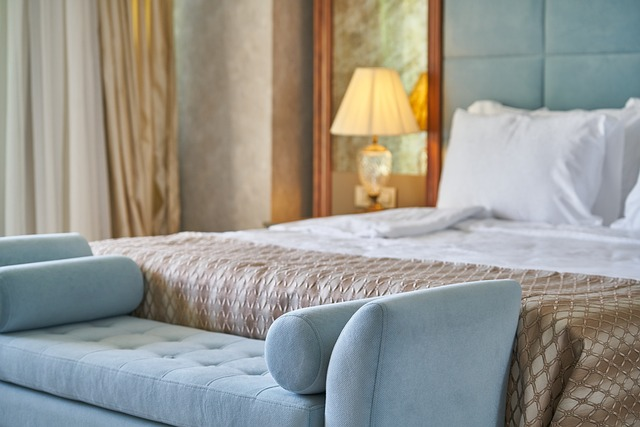
Step 3: Plan Your Accommodation
Accommodation is a significant part of your travel budget, and your choice will depend on your travel style and preferences. Here are the main options:
Hostels and Budget Hotels
For budget travelers, hostels and budget hotels are the most economical choices. Prices for hostels can range from €20 to €50 per night, while budget hotels might cost between €40 and €70 per night. Hostels often offer dormitory-style rooms, which are great for meeting other travelers, and some even provide private rooms at a higher rate.
Mid-Range Hotels and Airbnb
Mid-range travelers might prefer the comfort and amenities of mid-range hotels or Airbnb rentals. Prices for mid-range hotels can range from €100 to €150 per night, while Airbnb options can vary from €60 to €150 per night depending on the location and type of property. Booking in advance can help you secure better rates and more options.
Luxury Hotels and Resorts
Luxury travelers seeking upscale experiences will find plenty of high-end hotels and resorts in Ireland. Prices for luxury accommodations can start at €200 per night and go up to €500 or more. These properties often offer premium services, such as fine dining, spa treatments, and concierge services.

Step 4: Calculate Daily Expenses
Daily expenses in Ireland will include food, transportation, and activities. Here’s a detailed budget breakdown below:
Food and Drink
Food costs can vary widely depending on where and what you eat. Here’s a general estimate of average costs:
-
Budget Travelers: €10-€20 per day for breakfast, €15-€30 for lunch, and €20-€50 for dinner. Cooking some of your meals or opting for street food and local eateries can help you save money.
-
Mid-Range Travelers: €20-€30 per day for breakfast, €30-€50 for lunch, and €50-€100 for dinner. This allows for a mix of casual and nicer dining experiences.
-
Luxury Travelers: €30-€50 per day for breakfast, €50-€100 for lunch, and €100+ for dinner. Fine dining and gourmet experiences will be a significant part of your budget.
Transportation
Transportation costs will depend on just how much a trip you choose extra cost just to get around:
-
Public Transport: Buses and trains are affordable options, with fares ranging from €2 to €10 per journey. Consider purchasing a travel pass if you plan to use public transport frequently.
-
Car Rental: Renting a car gives you the flexibility to explore at your own pace. Rental prices range from €30 to €50 per day, plus fuel costs. Factor in parking fees and potential tolls as well.
-
Taxis and Ride-Sharing: Taxis and ride-sharing services are convenient for short trips. Fares start at €4, with additional costs per kilometer. Use ride-sharing apps like Uber or Bolt to compare prices.
Activities and Attractions
Ireland offers a wide range of activities, from free outdoor adventures to paid attractions:
-
Free Activities: Many outdoor activities, such as hiking and exploring national parks, are free. Visit places like the Cliffs of Moher, the Giant’s Causeway, and various scenic trails.
-
Paid Attractions: Entry fees for museums, castles, and other attractions range from €5 to €20. Organized tours can cost between €30 and €100 per person, depending on the length and inclusions.
Step 5: Add Miscellaneous Costs
Miscellaneous costs can include travel insurance, visas, and other unexpected expenses. It’s important to factor these into your budget to avoid any surprises.
Travel Insurance
Travel insurance is essential for covering unforeseen events such as medical emergencies, trip cancellations, and lost luggage. Prices vary based on the coverage and provider, but you can expect to pay around €50 to €100 for a comprehensive policy for a one-week trip.
Visas
Depending on your nationality, you might need a visa to enter Ireland. Check the visa requirements for your country and budget for any associated fees. Visa fees can range from €20 to €100.
Other Miscellaneous Costs
-
Souvenirs: Budget for souvenirs if you plan to bring home gifts or keepsakes. Prices vary depending on what you buy.
-
Tipping: Tipping is not mandatory in Ireland, but it’s customary to leave a 10-15% tip in restaurants and a small tip for taxi drivers.
-
Currency Exchange Fees: If you need to exchange currency, be aware of potential fees. Use a travel-friendly credit card to minimize these costs.
Putting It All Together
To give you a clearer picture, let’s summarize the estimated costs for a one-week trip to Ireland based on different travel styles.
| Travel Style | Flights | Accommodation | Daily Expenses | Miscellaneous Costs | Total Estimated Costs |
|---|---|---|---|---|---|
| Budget Travelers | €400-€800 (from the US) | €140-€350 | €30-€50 per day, totaling €210-€350 | €50-€150 (including travel insurance, visas, and other expenses) | €800-€1650 |
| Mid-Range Travelers | €400-€800 (from the US) | €700-€1400 | €50-€100 per day, totaling €350-€700 | €100-€200 (including travel insurance, visas, and other expenses) | €1550-€3100 |
| Luxury Travelers | €400-€800 (from the US) | €1400+ | €100+ per day, totaling €700+ | €200+ (including travel insurance, visas, and other expenses) | €2700+ |
1. For Budget Travelers
-
Flights: €400-€800 (from the US)
-
Accommodation: €140-€350
-
Daily Expenses: €30-€50 per day, totaling €210-€350
-
Miscellaneous Costs: €50-€150 (including travel insurance, visas, and other expenses)
Total Estimated Costs: €800-€1650
2. For Mid-Range Travelers
-
Flights: €400-€800 (from the US)
-
Accommodation: €700-€1400
-
Daily Expenses: €50-€100 per day, totaling €350-€700
-
Miscellaneous Costs: €100-€200 (including travel insurance, visas, and other expenses)
Total Estimated Costs: €1550-€3100
3. For Luxury Travelers
-
Flights: €400-€800 (from the US)
-
Accommodation: €1400+
-
Daily Expenses: €100+ per day, totaling €700+
-
Miscellaneous Costs: €200+ (including travel insurance, visas, and other expenses)
Total Estimated Costs: €2700+
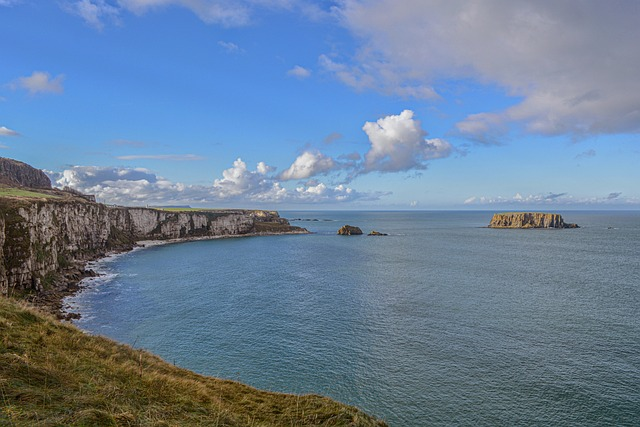
How to Plan a Budget-Friendly Trip to Ireland?
Planning a budget-friendly trip to Ireland is possible with careful planning and smart choices. Here are some tips to help you save money:
Choose Off-Peak Travel Times
Traveling during the off-peak season (November to March) can significantly reduce your costs, as flights and accommodation tend to be cheaper.
Stay in Budget Accommodations
Consider staying in hostels, budget hotels, or Airbnb to save on accommodation costs. Booking in advance can also help you secure lower rates.
Use Public Transportation
Public transportation in Ireland is efficient and affordable. Use buses and trains instead of renting a car to save money.
Eat Like a Local
Opt for local eateries, food markets, and grocery stores instead of dining at expensive restaurants. This can significantly cut down your food expenses.
Take Advantage of Free Attractions
Ireland offers many free attractions, such as national parks, hiking trails, and historical sites. Plan your itinerary around these to save on entrance fees.
Money-Saving Tips for Ireland Travel
Here are some additional tips to help you save money during your trip to Ireland:
Book in Advance
Booking flights, accommodation pub meals, and tours in advance can help you get the best deals and avoid last-minute price hikes.
Use Discount Cards
Consider purchasing discount cards like the Dublin Pass or the Heritage Card, which offer free or discounted entry to numerous popular attractions here.
Travel with a Group
Traveling with a group can help you split costs for accommodation, car rentals, and other expenses, making your trip more affordable.
Avoid Tourist Traps
Steer clear of overpriced tourist traps and seek out local recommendations for more authentic and budget-friendly experiences.
Pack Light
Packing light can save you money on baggage fees, especially if you’re flying with budget airlines.
Hidden Costs of Traveling Ireland
While planning your one day trip, be aware of potential hidden costs that can catch you off guard. Here are some to consider:
Currency Exchange Fees
Currency exchange fees can add up quickly. Use a travel-friendly credit card or exchange currency in advance to avoid high fees.
ATM Fees
Using ATMs in Ireland can incur fees from both your home bank and the local bank. Withdraw larger amounts to minimize these fees.
Tipping
Tipping is not mandatory in Ireland, but it’s customary to leave a 10-15% tip in restaurants and a small tip for taxi drivers.
Souvenirs
Souvenirs can quickly add up. Set a budget for souvenirs and stick to it to avoid overspending.
Unexpected Medical Costs
Travel insurance is essential to cover any unexpected medical costs. Make sure your policy includes coverage for any activities you plan to do.
FAQs on How Much Does It Cost To Go to Ireland
What is the average cost of a trip to Ireland?
The average cost of a one-week trip to Ireland ranges from €700 for budget travelers to average price of over €2800 for luxury travelers.
Is Ireland expensive to visit?
Ireland can be expensive, especially in major cities like Dublin. However, with careful planning and budgeting, it’s possible to visit without breaking the bank.
How much does food cost in Ireland?
Food costs vary, with restaurant meals ranging from €10 to €50 per person. Cooking your meals can significantly reduce food expenses.
What are the cheapest times to visit Ireland?
The cheapest times to visit Ireland are during the shoulder season of the summer months and the off-peak season, from November to March, when flights and accommodation are more affordable.
How can I save money on accommodation in Ireland?
To save money on accommodation, consider staying in hostels, budget hotels, or booking Airbnb. Booking in advance can also secure better rates.
